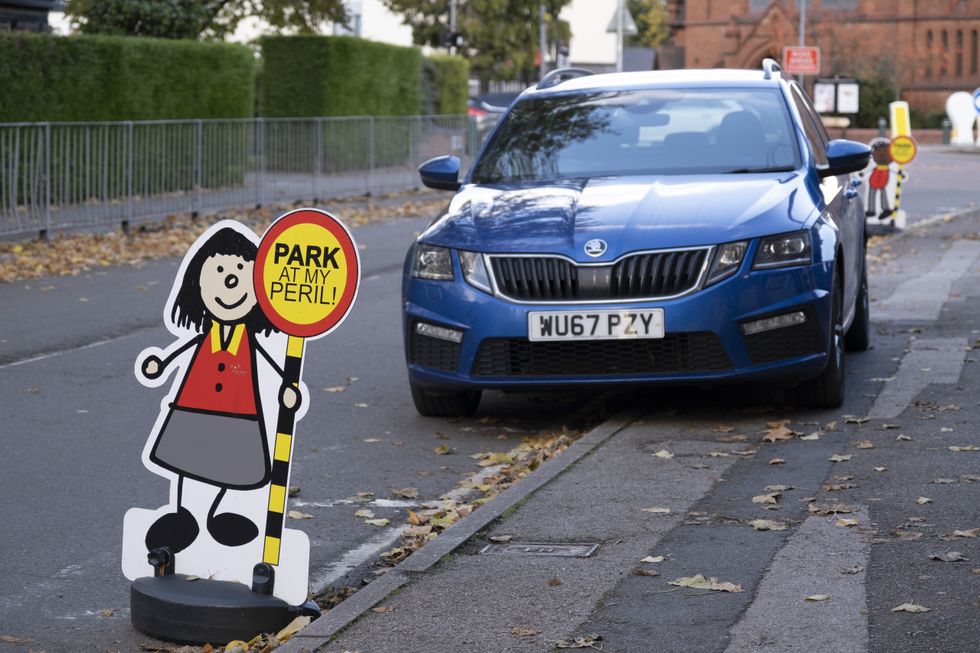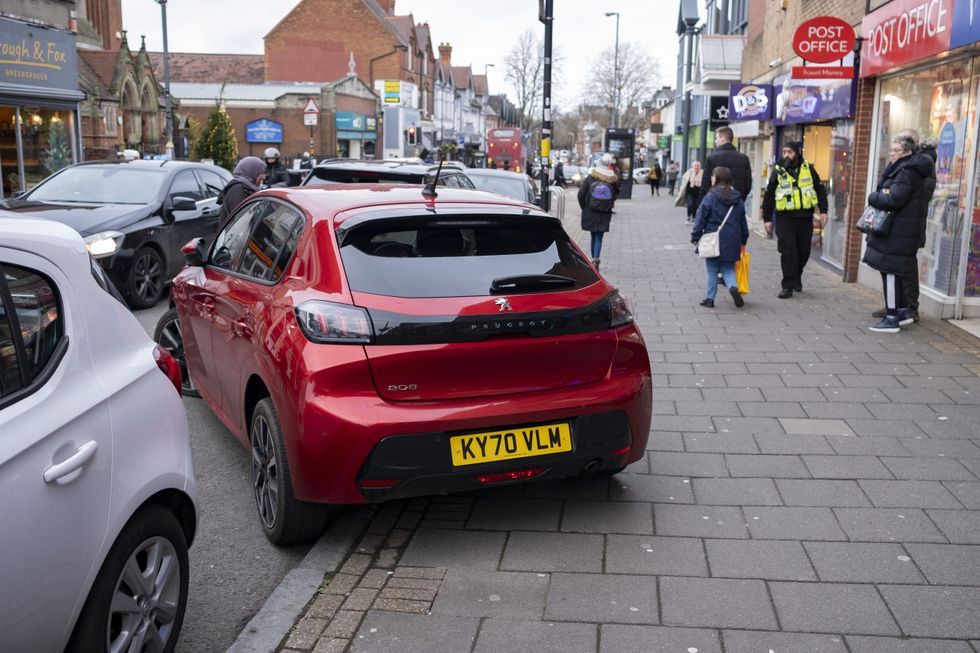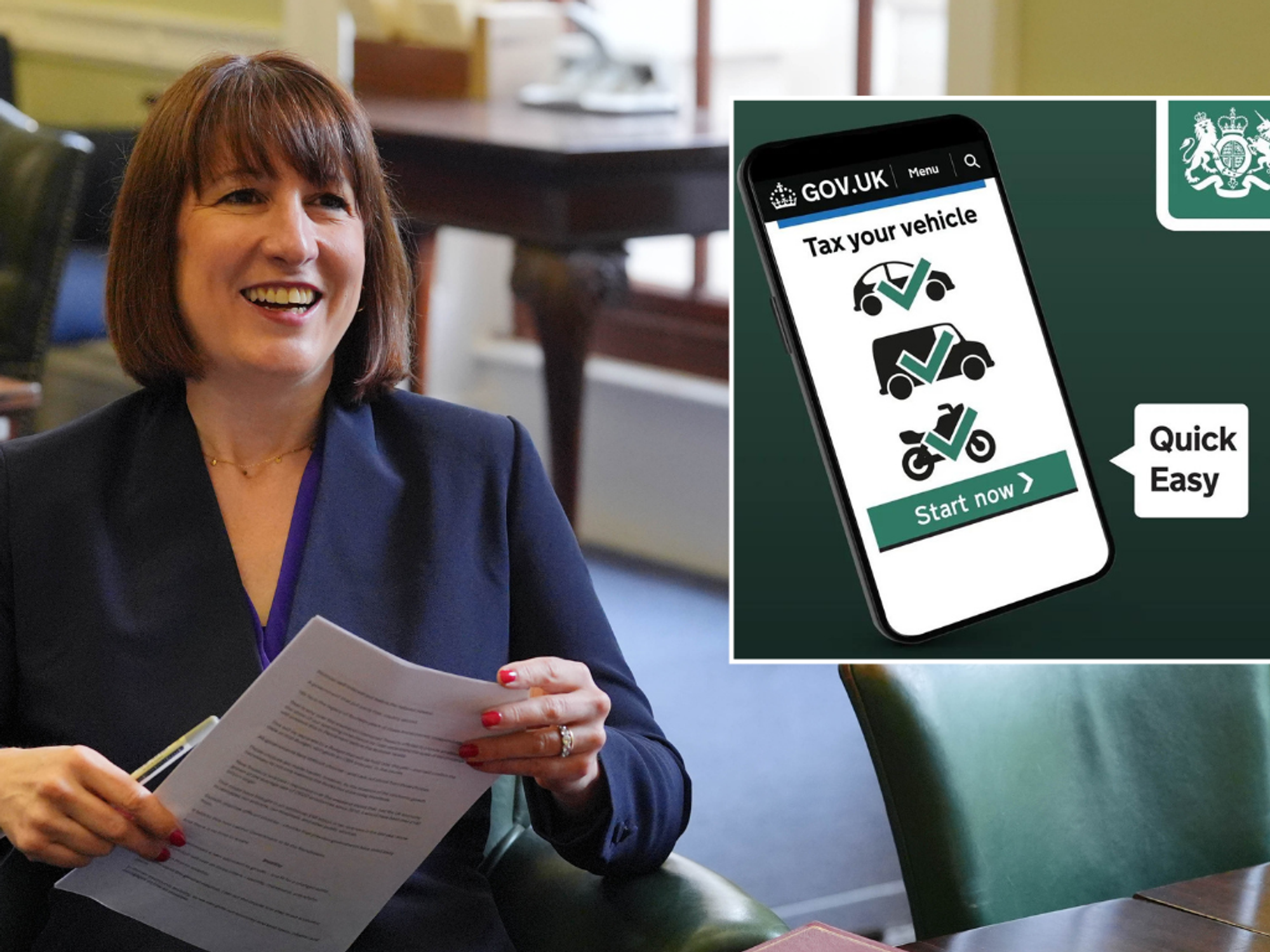'In England there’s still a massive question about if and when controls will ever be introduced'
Don't Miss
Most Read
Trending on GB News
Experts are calling on the Government to urgently introduce new parking laws to address issues with people leaving their cars on pavements.
A consultation was launched more than three years ago looking into the viability of banning pavement parking across England, as is the case already in London.
The Local Government Association (LGA) is now calling on central Government to ban pavement parking in a bid to make streets safer for all road users.
In most instances, the elderly, disabled people using wheelchairs, parents with pushchairs and people with sight issues are forced to enter the road to get around poorly parked vehicles.
Do you have a story you'd like to share? Get in touch by emailingmotoring@gbnews.uk

The LGA said new rules would help councils achieve active travel goals
GETTY
Pavement parking can also damage and crack the surface, making it even more difficult for pedestrians to use the pavements and requiring expensive repairs.
The LGA, which represents councils in England and Wales, said new laws for England were “long overdue”, adding that local authorities would be able to use the rules to promote active travel.
A new report highlighted how councils are facing serious challenges with the difficulty in maintaining footways, as well as the “bureaucratic hurdles” in obtaining Traffic Regulation Orders.
Councillor Darren Rodwell, transport spokesperson for the LGA, said: “Pavement parking is one of the biggest complaints from pedestrians, but three years on, councils outside of London still do not have the powers they need to tackle this scourge.
“If we are to meet the Government’s ambition for half of all trips in England's towns and cities to be walked, wheeled or cycled by 2030, then it makes sense to give councils across the country the same powers as in the capital, making our streets safer and footpaths open for everyone.”
Parking infractions for drivers leaving in the cars on the pavement are active in London where councils also have the powers to exempt certain roads.
Scotland introduced pavement parking laws nationwide on December 11, 2023, with drivers in Edinburgh being given an extra seven weeks to get used to the rules.
Drivers could be hit with a £100 fine for parking on the pavement, although the penalty charge is slashed to £50 if they pay within 14 days.
The Government in Wales is also set to introduce new laws banning the practice in the near future.
Councillor Darren Rodwell added: “Vulnerable and disabled people, including wheelchair users as well as parents with pushchairs are forced into the road due to some drivers’ inconsiderate parking, presenting a real hazard and potential danger to life.
“Repairing kerbs and pavements damaged by pavement parking is also expensive and this funding could be better used to resurface our roads and pavements, support local buses and provide more suitable parking.”
A report from the LGA, Sustrans and Transport for All, identified that the poor quality of pavements can lead to lower footfall for businesses, as well as councils needing to pay out injury claims for people tripping over.
LATEST DEVELOPMENTS:

Scotland introduced the new parking laws in December 2023
GETTY
It warned that elderly people could suffer from reduced independence, social isolation and exclusion if they do not feel safe using the pavements.
RAC head of policy Simon Williams said: “Pavement parking is at best inconvenient and at worst hazardous for pedestrians and those in wheelchairs, but in England there’s still a massive question about if and when controls will ever be introduced.
“As long as we’re left waiting for the Government’s response to its 2020 consultation, councils have limited powers to roll out pavement parking controls and make journeys safer for those on wheels and walking.
"Rather than an outright ban, we think it would be more effective if local authorities were given enforcement powers to prevent unnecessary pavement obstructions.
"This prevents the need for them having to survey all their roads to work out where exemptions need to be made, then spend money putting up signs and painting new markings.”









